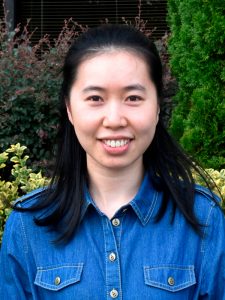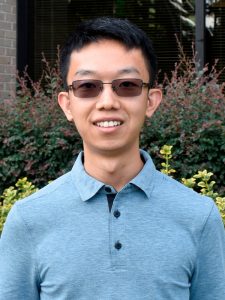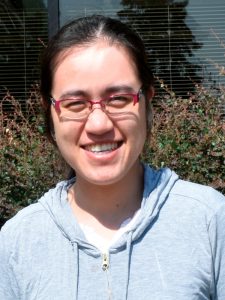Each year SAMSI welcomes a new crop of postdoctoral researchers that support their annual academic programs. This year, SAMSI welcomes five new researchers who are focused on supporting the 2018-19 PMED and MUMS Programs.
Supporting the Program on Statistical, Mathematical and Computational Methods for Precision Medicine (PMED)
 Xinyi Li
Xinyi Li
Xinyi Li received her Ph.D. in Statistics from Iowa State University in 2018, under the supervision of Dr. Lily Wang. Her research interests are in developing statistical methods as well as designing computational algorithms in sparse learning, functional data analysis, and high-dimensional nonparametric regression. Her application areas include neuroimaging, genomics, and public health. In her spare time she enjoys sports (badminton, hiking, skiing, etc), reading and watching sports (tennis, football, badminton, etc).
 John Nardini
John Nardini
John Nardini received his Ph.D. from the University of Colorado, Boulder, where his dissertation was on mathematical models of epidermal wound healing. He is interested in the derivation and analysis of partial differential equation models of biological phenomena, as well as inverse problems to fit these models to experimental data. While at SAMSI, he will be working with Professors Kevin Flores from NC State and Greg Forest from UNC Chapel Hill.
Supporting the Program on Model Uncertainty: Mathematical and Statistical (MUMS)
 Pulong Ma
Pulong Ma
Pulong Ma received his Ph.D. in Statistics from University of Cincinnati. He has worked on spatial and spatio-temporal statistics with applications in remote-sensing science and climate science in his dissertation. In particular, he developed flexible (e.g., nonstationary and non-separable) covariance function models for massive spatial and spatio-temporal datasets. He also proposed a statistical downscaling framework to simulate high-resolution geophysical fields in global observing system simulation experiments (OSSEs). While at SAMSI, he will be working with Professor Jim Berger, from Duke University, in the area of uncertainty quantification (UQ). He is currently exploring interesting applications with focus on building statistical emulators for expensive computer models.
 Wenjia Wang
Wenjia Wang
Wenjia Wang received his Ph.D. in Operations Research from Industrial and Systems Engineering, Georgia Tech. His research interests are focused on statistical modeling, statistical design and theoretical analysis of Gaussian process as well as Kriging. He is also interested in their applications in computer experiments, machine learning and uncertainty quantification.
 Lei Yang
Lei Yang
Lei Yang earned her Ph.D. in Statistics from Colorado State University in 2018. During her Ph.D. study, she developed theoretical framework and computational methods for stochastic inverse problem, which turns out to be related to generalized fiducial inference. She is also interested in bayesian projected normal time series model applied to protein sequence data as well. At her spare time, she enjoys swimming and getting hands dirty on predictive modeling projects.